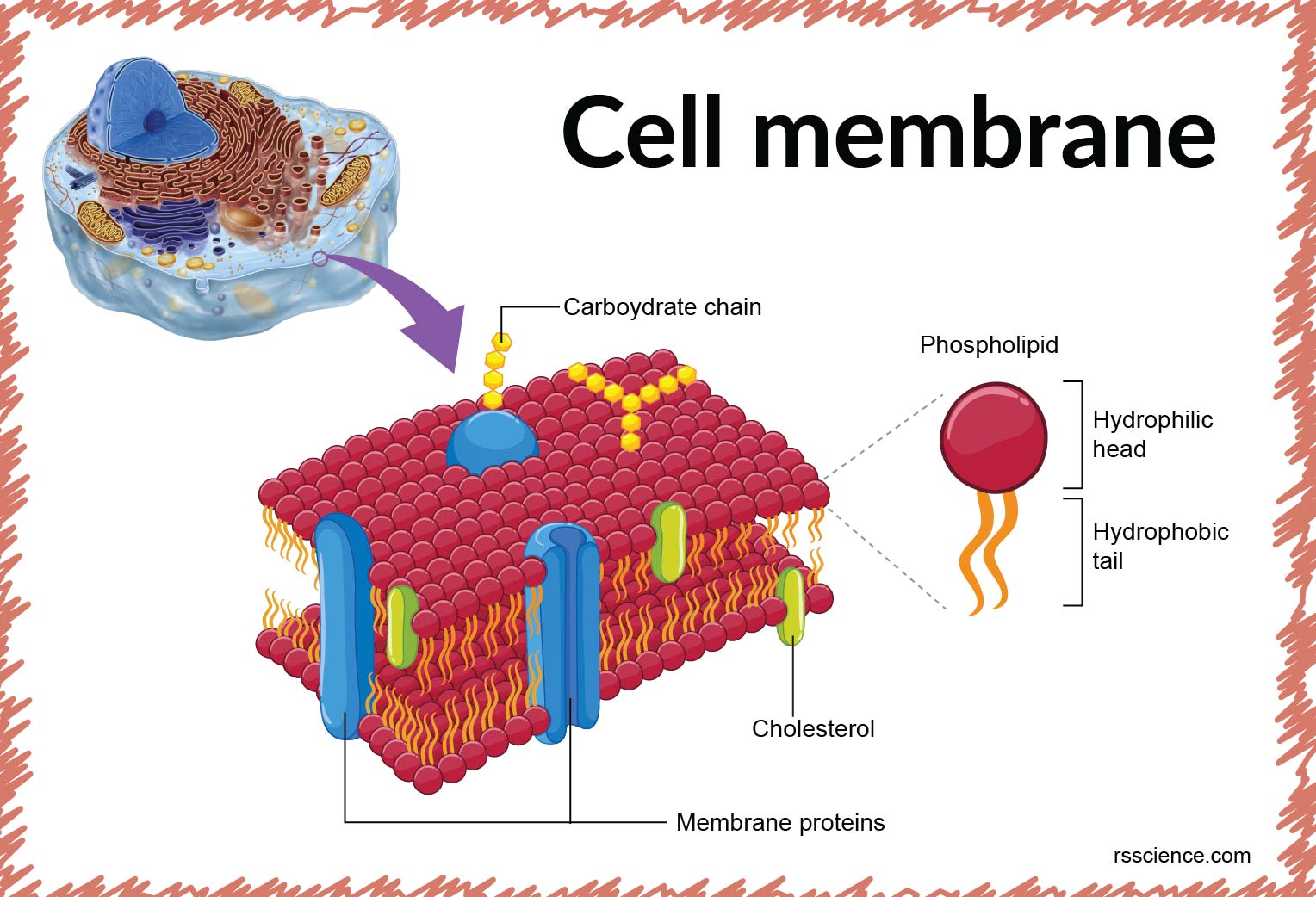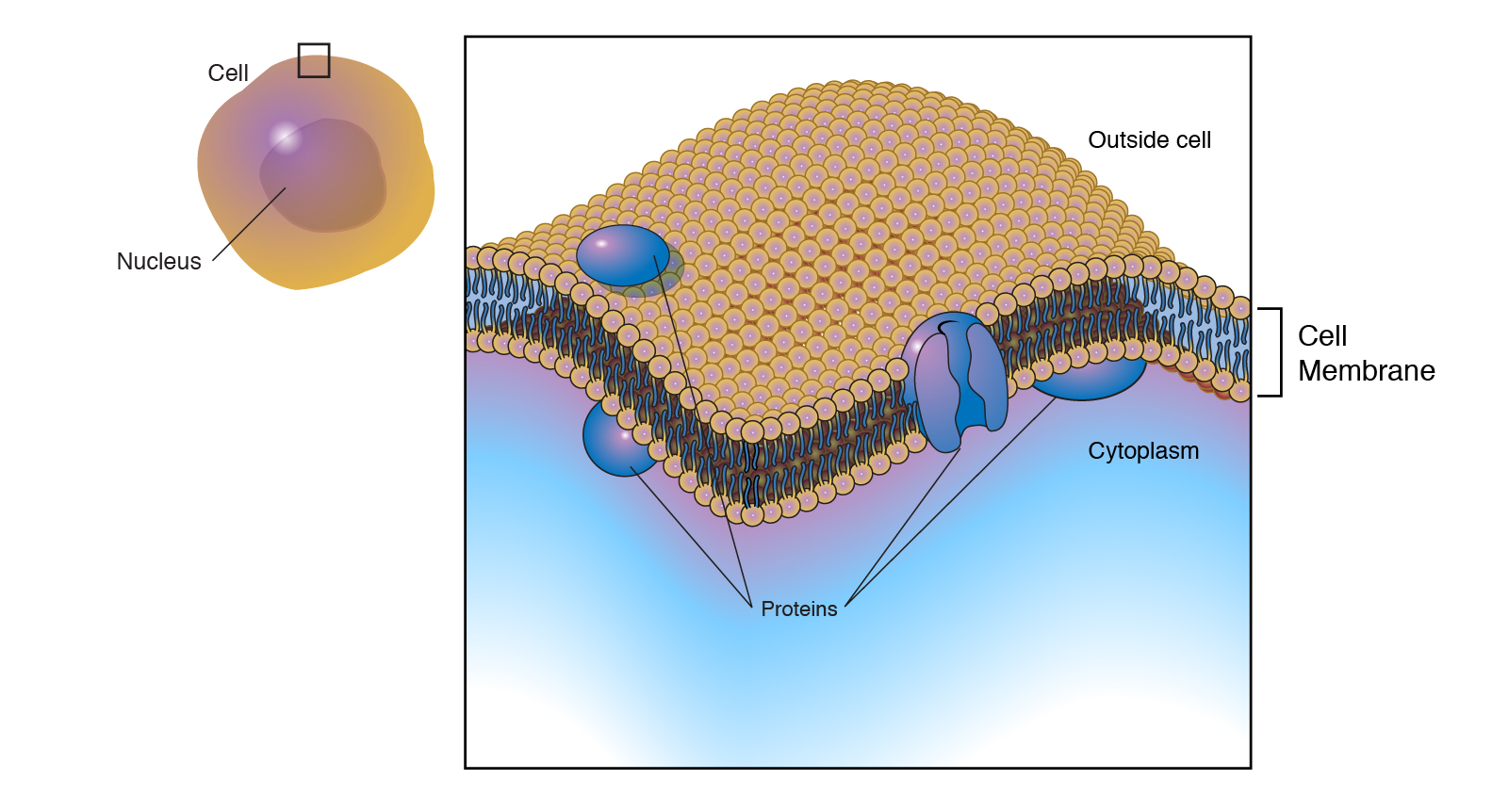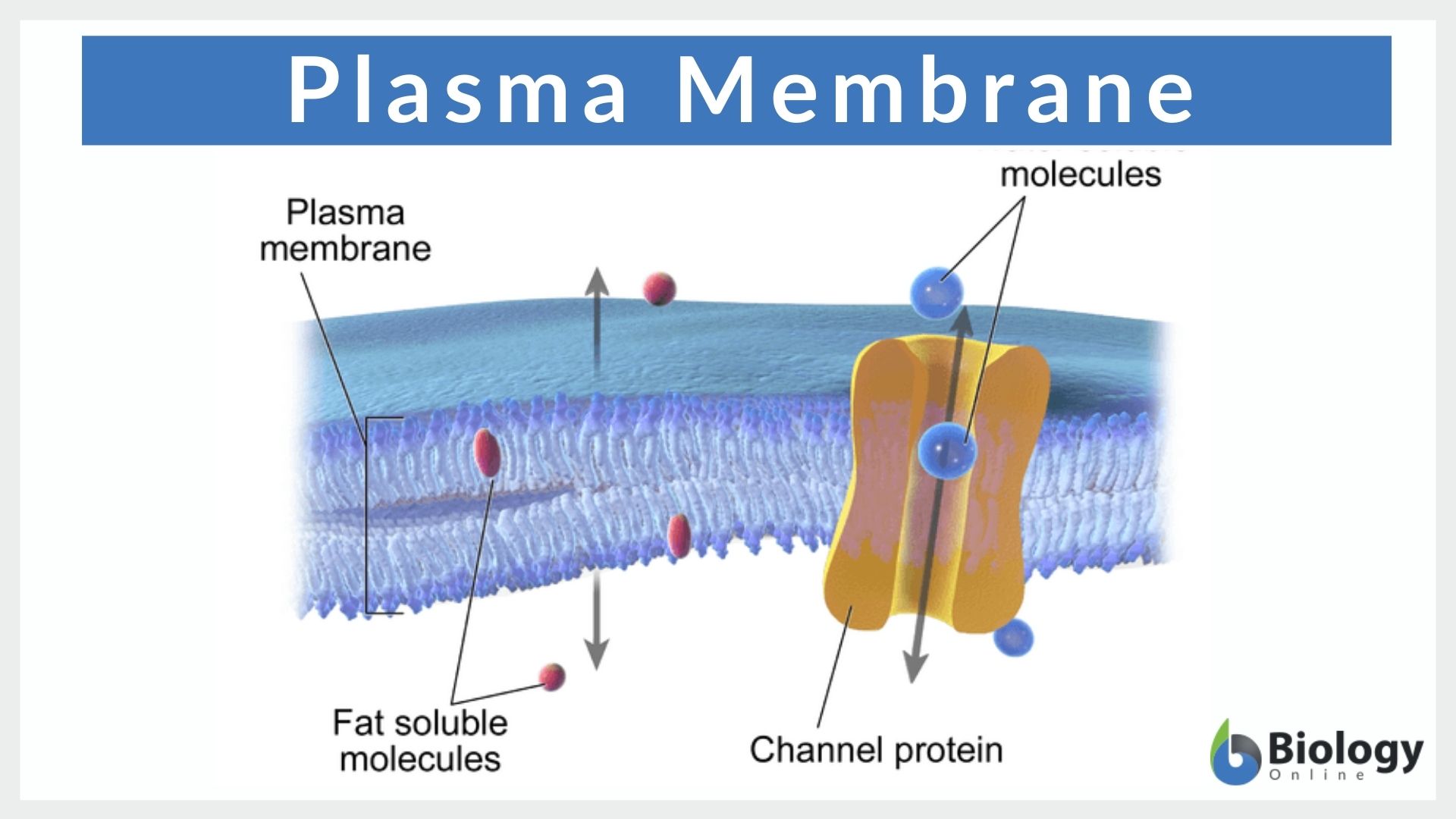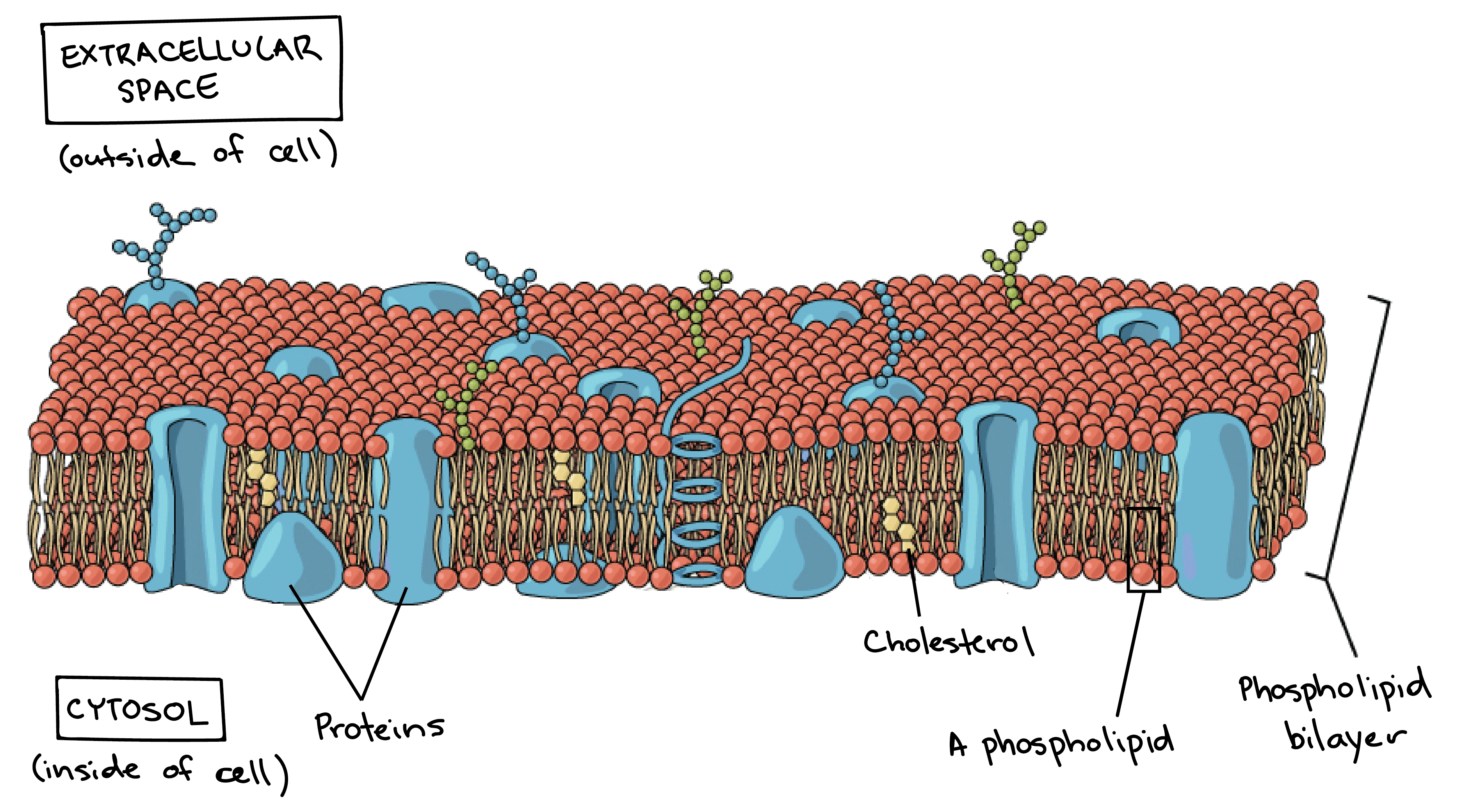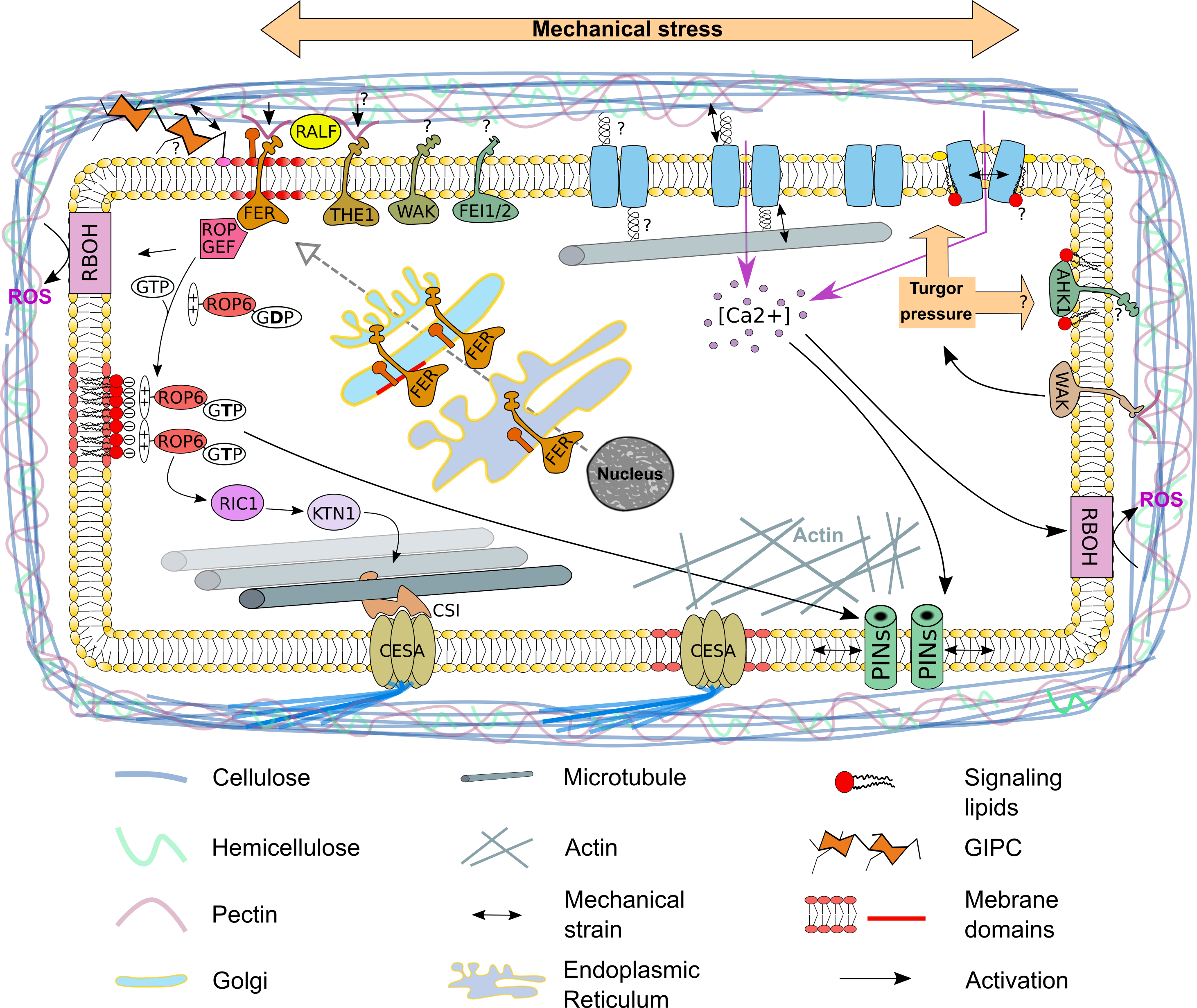Cell Membrane Definition Easy

CELL MEMBRANE Discovery.
Cell membrane definition easy. Proteins and lipids are the major components of the cell membrane. Membrane in biology the thin layer that forms the outer boundary of a living cell or of an internal cell compartment. A thin membrane a double layer of lipids enclosing the cytoplasm of a cell.
The cell membrane consists of a lipid bilayer that is semipermeable. A cell membrane is a fluid flexible barrier on the outside of a cell that protects it. Most of the small hydrophobic molecules without affinity for water pass through this membrane freely.
A cell membrane is a border that covers every cell in a living organism. Its basic job is. The cell membrane is responsible for the transport of molecules and ions in and out of the cell.
Proteins in the membrane control passage of ions like sodium or potassium or calcium in and out of the cell. All cells have a cell membrane syn. The cell membrane is a phospholipid bi-layer into which proteins glycoproteins and glycolipids are ingrained.
The plasma membrane is the cells outermost layer in mammals although it is. The structure separating an animal cell from its environment or a plant cell from its cell wall. The cell membrane is also known as plasma membrane or plasmalemmaThis membrane separates the fluid outside the cell called extracellular fluid ECF and the fluid inside the cell called intracellular fluid ICF.
Cell membrane also called plasma membrane cytoplasmic or protoplasmic membrane. Unlike the cell wall the cell membrane is flexible and its shape can be changed as needed. Cell Membrane was discovered by Swiss botanist Carl Naegeli and C.
